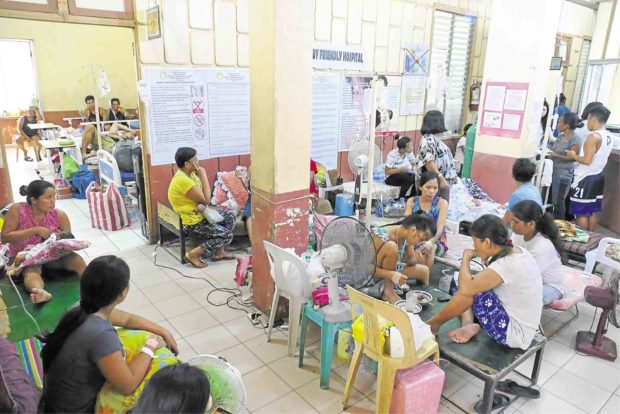Single father’s woes open eyes to state of health services
Features | by ZFF Admin

By Blanche R. Fernandez (Inquirer.net)
Construction worker Joseph Salibio, 38, couldn’t imagine life getting worse than it already was, when he could hardly make ends meet for his brood of seven and couldn’t find a better job because he never went to school.
But when his wife died in 2016, his eldest daughter had to stop schooling to care for her younger siblings, and one or two kids had to stay with relatives so they could survive.
In January 2017, just months after burying his spouse, Salibio met with Aklan Gov. Florencio Miraflores and poured out his woes as a suddenly single father.
To his surprise, his wife’s death would later pave the way to better health for the residents of this remote coastal town.
His wife, Salibio recounted, had given birth to their seventh child with the help of a traditional “hilot” at their home in Barangay Nazareth.
She did not want to go to a health facility, he said, because during her prenatal checkups, she had been called out for having so many children.
Bleeding
Five hours after giving birth, she was still bleeding. Neighbors helped carry her on a hammock to where they could get a tricycle to Buruanga Municipal Hospital.
When they reached the facility at 2 a.m., they found the hospital closed.
The group then rushed to Malay Municipal Hospital 21 kilometers away, but his wife never made it — she bled to death along the way.
“You can see right away that even if she had started bleeding after childbirth, if there were personnel in the hospital, she could have been saved,” said Miraflores, who met the widower while he checked out health services in far-flung communities as part of his training under Zuellig Family Foundation’s Provincial Leadership and Governance Program.
“Even if the hospital personnel were not capable of helping her, if there had been an ambulance, she could have been brought to the next hospital,” the governor said. When any aspect of the health delivery system breaks down, death is often a consequence, he added.
Before his health leadership training, Miraflores was already thinking of shutting down small hospitals, including the one in Buruanga, because they were “not functioning very well.”
Now, instead of closing peripheral facilities, he has decided to strengthen them. Buruanga Municipal Hospital has become operational 24/7 and has its own pharmacist while Malay Municipal Hospital is being primed to become a Level 1 hospital by 2019.
For 2018, over one-third of Aklan’s budget — an unprecedented P748 million — has been allocated for health.
This will fund the provincial government’s plan to double the provincial hospital’s bed capacity, expand the surgical, orthopedic and pediatric wards, set up a 20-unit dialysis center, open the province’s own blood bank, upgrade peripheral health facilities, and increase the compensation of nurses in peripheral hospitals so they would be attracted to work in remote towns.
Birthing centers
Aklan is also working to upgrade Ciriaco S. Tirol Hospital in Boracay from infirmary to Level 1, specializing in trauma.
A birthing center will also be built in Caticlan in partnership with the Department of Health (DOH).
Of the 17 birthing centers across the province, only 10 are accredited for the maternal healthcare package of the Philippine Health Insurance Corp.
But, perhaps, the most ambitious initiative is the provincial government’s plan to issue loaded PayMaya cards to indigents in Aklan, which now number 170,000, according to the latest National Household Targeting System.
The cards can be used to buy medicines and other supplies when indigents get admitted to hospitals.
Hopefully, Aklan’s health initiatives would inspire other governors in the region to invest in the health of their constituents, said DOH regional director Marlyn Convocar.
For Miraflores, the initiatives aren’t just “about hospitals … but about cooperation between provincial and municipal workers to ensure an effective health delivery system.
The challenge is how to put it all together,” he added.
OVERCROWDED A typical scene inside Dr. Rafael Tumbokon Memorial Hospital in Kalibo, Aklan, shows patients and their caregivers sharing their meals on makeshift tables in common areas that lack comfort and privacy.
This article was published in Philippine Daily Inquirer.
